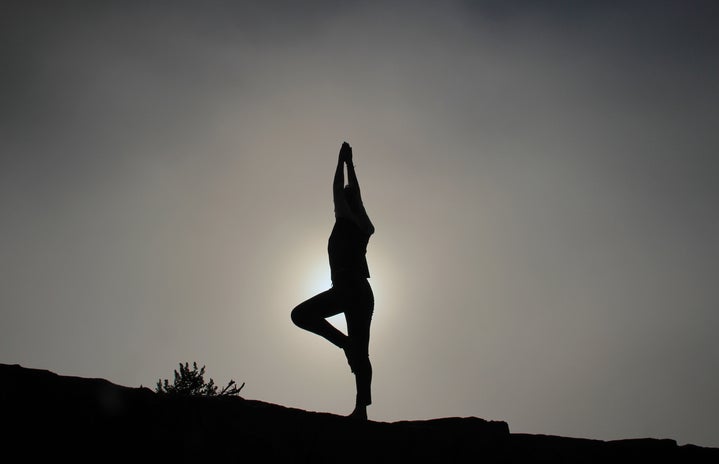I dread shaking hands with people. This completely normal, uber-common greeting is the bane of my existence. If I felt it would actually achieve anything, I would create a petition calling to professionalize the fist bump.
To put it simply, I would say I don’t like being touched, but that’s not entirely true. I would love to be comfortable with hand shakes, high fives and hand-holding, but I am deeply afraid that people will be disgusted when they touch me.
I have hyperhidrosis, and you probably have no idea what that is.
According to the Canadian Dermatology Association, hyperhidrosis is a disorder that causes excessive, unprovoked sweating and affects roughly three per cent of Canada’s population. I have primary palmoplantar hyperhidrosis, which means the cause is unknown and not linked to other underlying conditions and the excessive sweating is mainly focused in my hands and feet. November is Hyperhidrosis Awareness Month.
I have been sweaty for as long as I can remember. Having cold, clammy hands is my calling card. Big whoop, some might say. Hyperhidrosis doesn’t cause me physical pain, it hasn’t prevented me from doing most normal things and it will never kill me.
But the mental cost is high; for such a simple issue, it has impacted my quality of life in ways that I never really understood until now.
For a long time I just thought being sweaty was normal and it didn’t bother me until it started to bother my parents. A doctor suggested we try prescription antiperspirants but I was young and that seemed intense, so we started seeing naturopaths and homeopaths.
I’ve probably consumed capsules of every herb, flower and weed in the world. I was still sweaty.
So we bought the prescription antiperspirant. I remember it smelling metallic and burning a little bit. Within a week, I had a chemical reaction that made all of the skin on my hands peel off and left the rest of me drier than the Sahara Desert. I decided I would rather be sweaty.
And so, sweaty I was. I was a kid in the early 2000s and life was good. At the time I didn’t feel like there was anything wrong with me but mentally, I was starting to internalize my condition.
In elementary school, my gym teacher told me I was unfit because I was sweating more than all the other kids. I remember wanting to do gymnastics so bad but never telling my mom to sign me up because I once tried to do the monkey bars and slipped right off, landing flat on my face and splitting my lip.
We did a square dancing unit in high school gym class and I clearly remember watching every single one of my classmates subconsciously grimace and wipe their hands on their clothes after touching me.
Even now, I type almost exclusively instead of handwriting anything because I can barely grip a pencil without it sliding right out my hand or getting the paper all wet. At home, you can find me pretty easily by following the trail of damp footprints I leave on our dark tile floor.
I don’t think I’ve ever gone a week in my entire life where someone hasn’t brought up my sweating. Sometimes they’re concerned and sometimes they’re joking, but after being told you’re gross for the ten thousandth time, you become pretty convinced that you are gross; that there is something deeply wrong and shameful about you, and that you should just avoid touching other people at all costs.
And so I did, because there is nothing more alienating than knowing that you, and your body, is the direct source of someone else’s disgust.
I’m not alone. There are testimonies from hyperhidrosis sufferers all over the world that call it an “ongoing torture” or say it is “ruining [their] life.” A published study demonstrated that hyperhidrosis has a significant mental impact on those who suffer from it, with nearly three quarters (74 per cent) of hyperhidrosis patients reporting that they felt moderately or significantly emotionally damaged because of the disorder.
Touch, we’ve come to discover, is a crucial component of human existence. And when you’re conditioned to fear it, it breaks something deep inside of you.
You might be wondering why I haven’t simply committed myself to a treatment. That is because there aren’t any – or at least, there aren’t any that are long-term, affordable, or completely safe.
I’ve gone the antiperspirant route and I’m not going back. That’s usually the first thing any doctor familiar with the disorder will suggest because it’s the most palatable. Everything just kind of gets worse from there.
The next option is Botox, and Botox costs money because people love to look younger. The average price of Botox is between $15 and $18 per unit and to treat the hands, dermatologists recommend anywhere between 50 to 100 units per palm. Not only are you looking at dropping thousands of dollars, but the effects only last six months to one year before the entire process has to be repeated. Many provincial health plans do not cover Botox specifically for hyperhidrosis and if your private plan does cover it, there is typically a cap that still leaves the patient paying hundreds of dollars out of pocket.
Next up is iontophoresis, which, let’s be honest, just automatically sounds bad. Simply put, it requires sending an electrical current through water into the affected areas. A machine costs around $1,000 and the treatment must be done at least once every week. Hard pass.
Last and definitely worst is surgery. There are a couple different kinds (some even involve lasers – cool!) but for the kind of hyperhidrosis I have, I would probably be directed towards endoscopic thoracic sympathectomy. Essentially, this means a surgeon would cut into my chest cavity near my armpits, collapse my lungs and cut the nerves between the sweat glands and the spinal column to “break the signal.”
“ETS is considered a last resort because it frequently causes serious, irreversible compensatory sweating (excessive sweating on large areas of the body or all over) as well as other debilitating effects such as extreme hypotension, arrhythmia, and heat intolerance. In fact, most physicians do not recommend ETS surgery because of the serious negative side effects of the procedure,” says the International Hyperhidrosis Society.
Let’s run back through that, shall we? To stop excessive sweating, you go through a surgery in which you could definitely die just to come out and sweat from everywhere, instead of just that one spot. You can start to see why many hyperhidrosis sufferers decide to just deal with it instead of pursuing treatment.
So I deal with it. I’m at the point where it doesn’t cross my mind every day.
But last week I had to introduce myself to and shake hands with a bunch of industry professionals. I wiped my hand on my pants before every single handshake.
The week before that, I did an interview and while holding the microphone, a small puddle of sweat gathered under my hand on the table. I put my arm over it and prayed no one noticed.
I get by. I try not to think about it. I also try not to think about blissfully holding hands with the person I like, or slow dancing, or writing elegantly with an ink pen and not smudging it all over the page, or wearing flip-flops, or shaking someone’s hand with enthusiasm instead of fear.
We get by.


